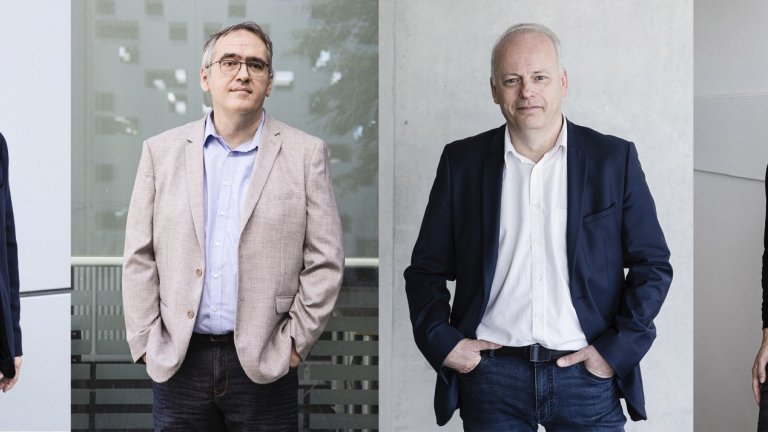
© Frédérique Plas / CNRS Images
View the mediaScientific news
Jacques Marteau, Pierre Nassoy, Denis Spitzer and Céline Vallot are the four recipients of the CNRS 2022 Innovation Medal.

© Frédérique Plas / CNRS Images
View the mediaCreated 10 years ago, this distinction honours people whose outstanding research has led to significant technological, economic, therapeutic or social innovations that promote French scientific research.
This award, which honours women and men whose research has led to an outstanding technological, therapeutic or social innovation, will be presented to them for the first time at the Viva Technology trade fair in Paris from 15 to 18 June.
Four laureates have received this distinction: Jacques Marteau, a particle physicist and associate professor at the Institute of Physics of the 2 Infinities (IP2I) of Lyon (Southeastern France), uses the potential of the muon detector in fields as varied as steelmaking, geophysical prospecting and civil engineering; Pierre Nassoy, CNRS research professor at the Photonics, Numerical, and Nanosciences Laboratory (LP2N) in Talence (Southwestern France), focuses on future therapies based on stem cells; Denis Spitzer, director of the Nanomaterials for Systems under Extreme Stress (NS3E) laboratory in Saint-Louis (Haut-Rhin), has developed two processes for ultrafine powders; and Céline Vallot, CNRS research professor at the Paris-based Dynamics of Genetic Information: Fundamental bases and cancer laboratory (DIG-Cancer), and her team are concentrating on non-genetic – and especially epigenetic – mechanisms, which can explain the adaptability of cancer cells.
Each has founded a company, respectively Muodim, TreeFrog Therapeutics, Spinofrin and One Biosciences. These companies, which cover all the scientific disciplines explored by the CNRS, all have the same goal: to add value to research and give it very concrete applications for the general public and industry. Particularly resilient and innovative, these start-ups offer new perspectives in all fields... And there's more to come, as nearly 100 new start-ups are born each year in CNRS laboratories.
Our work is guided by the way scientists question the world around them and we translate their research into images to help people to understand the world better and to awaken their curiosity and wonderment.